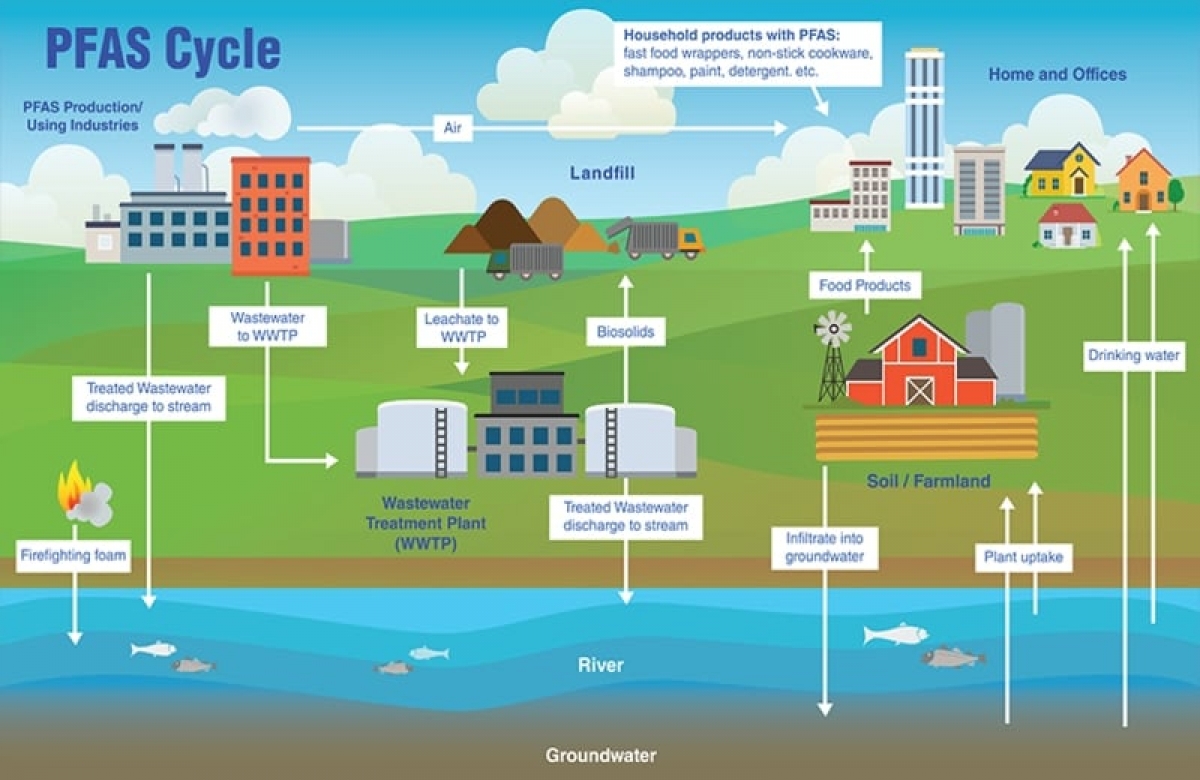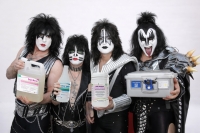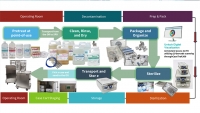
Toxins, Toxins, Everywhere
Do you worry about what goes into your body; what chemicals might be going into your children? The list keeps growing and now there are “Forever Chemicals” that never break down and go away. In fact, these compounds may take hundreds or even thousands of years to break down in the environment. Additionally, these compounds bioaccumulate, meaning that chemical concentrations are not cleared from the body, but instead increase over time as people consume trace amounts each day.
Chemicals of Concern
PFAS are found in drinking water in both home, and municipal water supplies, not even a glass of milk is safe. The problem is so pervasive a 100 year old family run dairy farm in rural Maine won’t sell or drink their own milk over concerns about PFAS as in this CBS news story, which you can view HERE. Yes, that’s right these compounds invented in the 1940s; now known by the nickname “forever chemicals” because they don’t break down and potentially cause health problems as they persist in the human body, can be found everywhere, in a glass of milk, and even a rain drop.
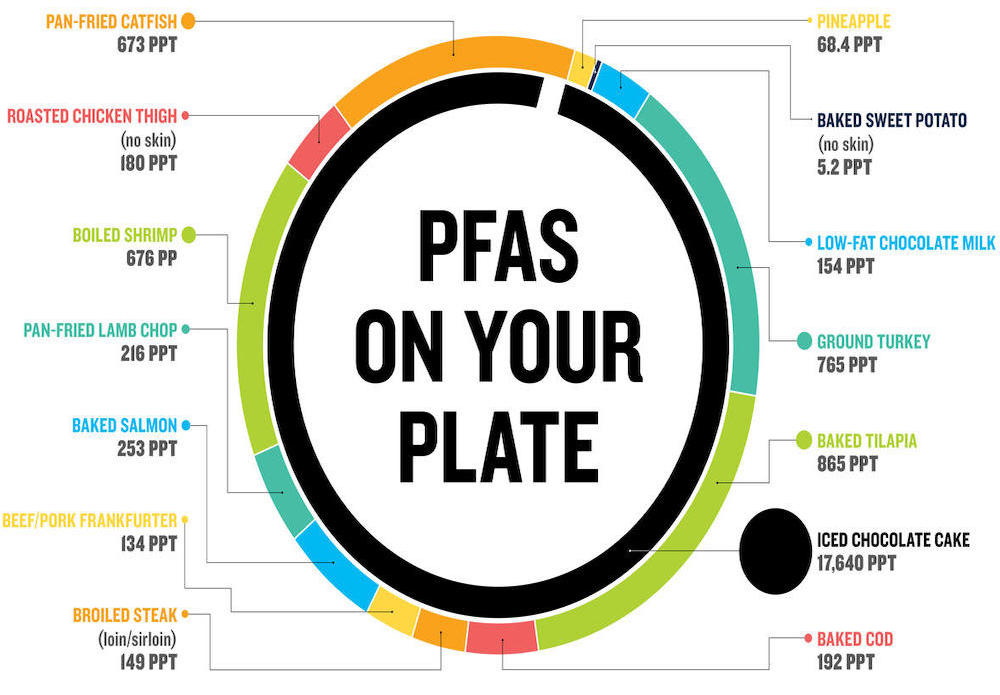
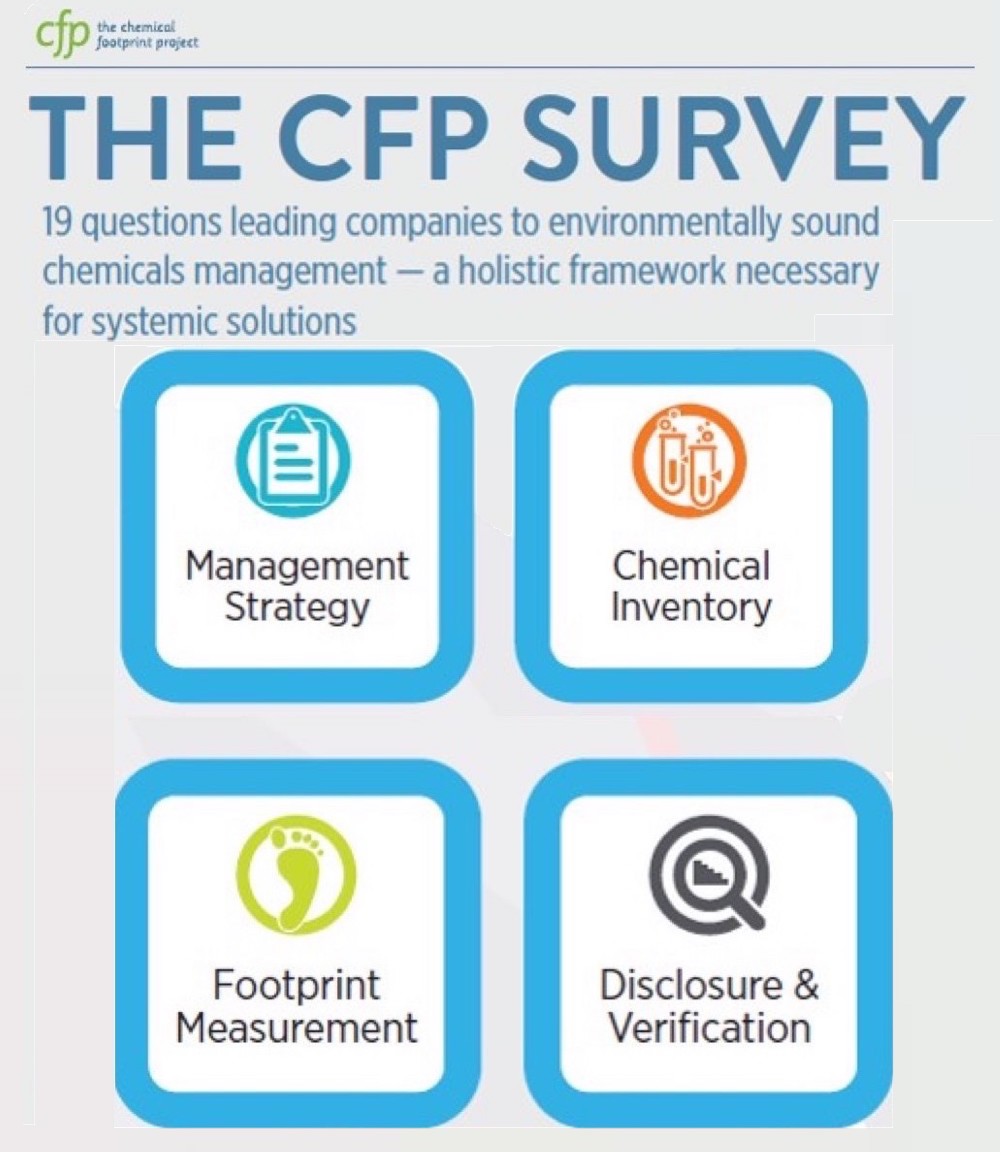
Where to look for Safer Options
How can you find out about companies that have taken the initiative to be good stewards of our planet Earth? You can access the U.S. EPA Safer Choice website. Further, you can participate in Practice Green Health which provides guidance to health care facilities looking to procure safer products and processes. In addition, consider the Chemical Footprint Project’s yearly survey of member company’s proactive chemical management programs. The objective of the Chemical Footprint survey is to find companies that have excelled across these four categories: Management Strategy, Chemical Inventory, Footprint Measurement, Disclosure and Verification. The Survey targets a diverse group of businesses from diverse sectors including household and personal products, building products and furnishings, hardware, and medical device manufacturing.
Continuous Improvement Initiatives
While a handful of states have set about trying to address these contaminants. It’s important to know that there are companies motivated to do the right thing too. If you’re concerned about toxic chemicals join with us to reduce the damage to our shared environment. At Case Medical, we believe continuous improvement, finding a better, more sustainable path is our best defense for these hazards. That is why we continue to innovate and provide new products that meet or exceed current standards. Case Medical is proactively addressing potential environmental issues in our products, workplace, and our neighborhood. That is why we participate in the Chemical Footprint Project.
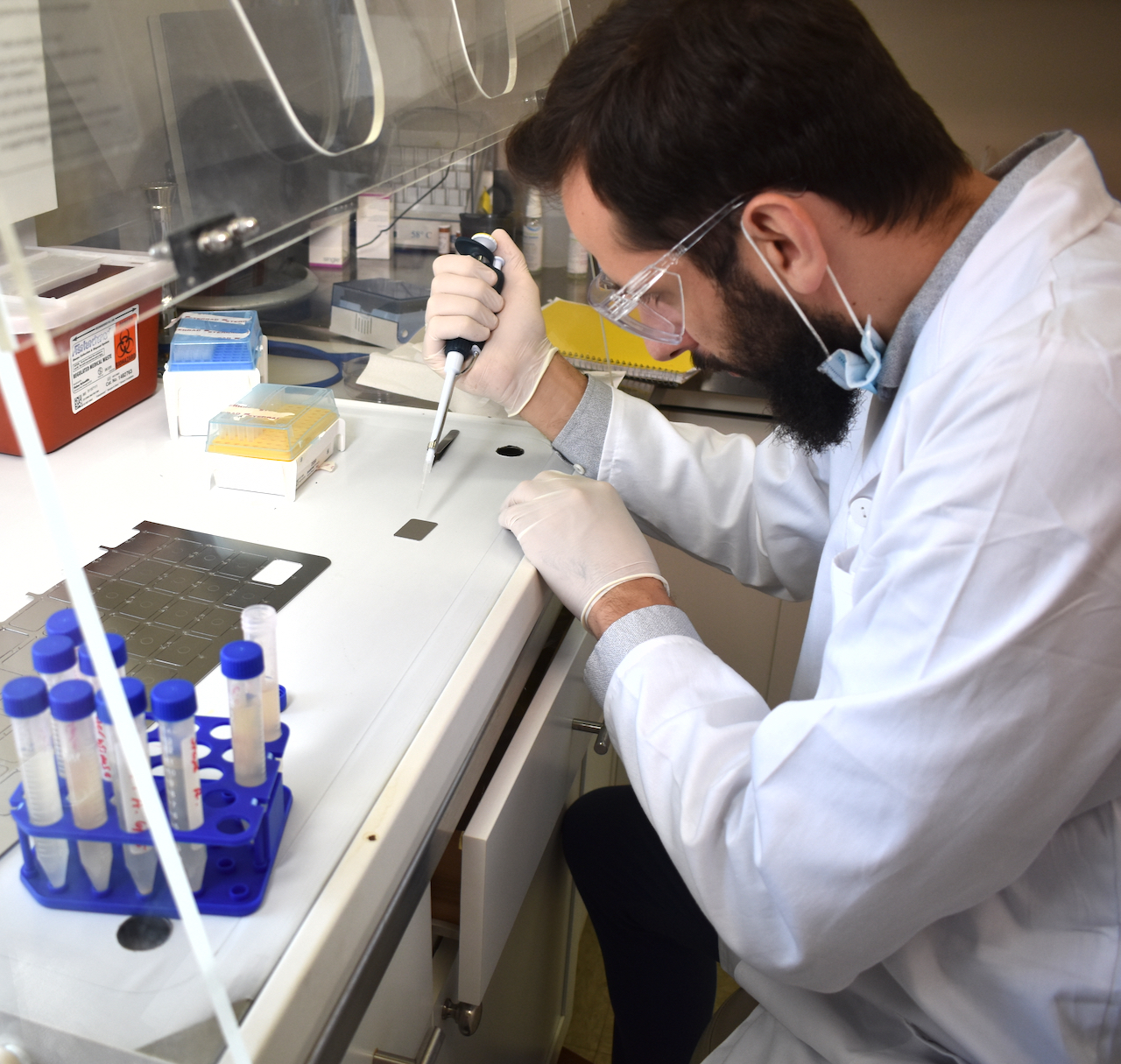
We’re pleased to announce that for 2021 Case Medical has scored a new all-time high score on the Chemical Footprint survey, surpassing even our own previous scores.
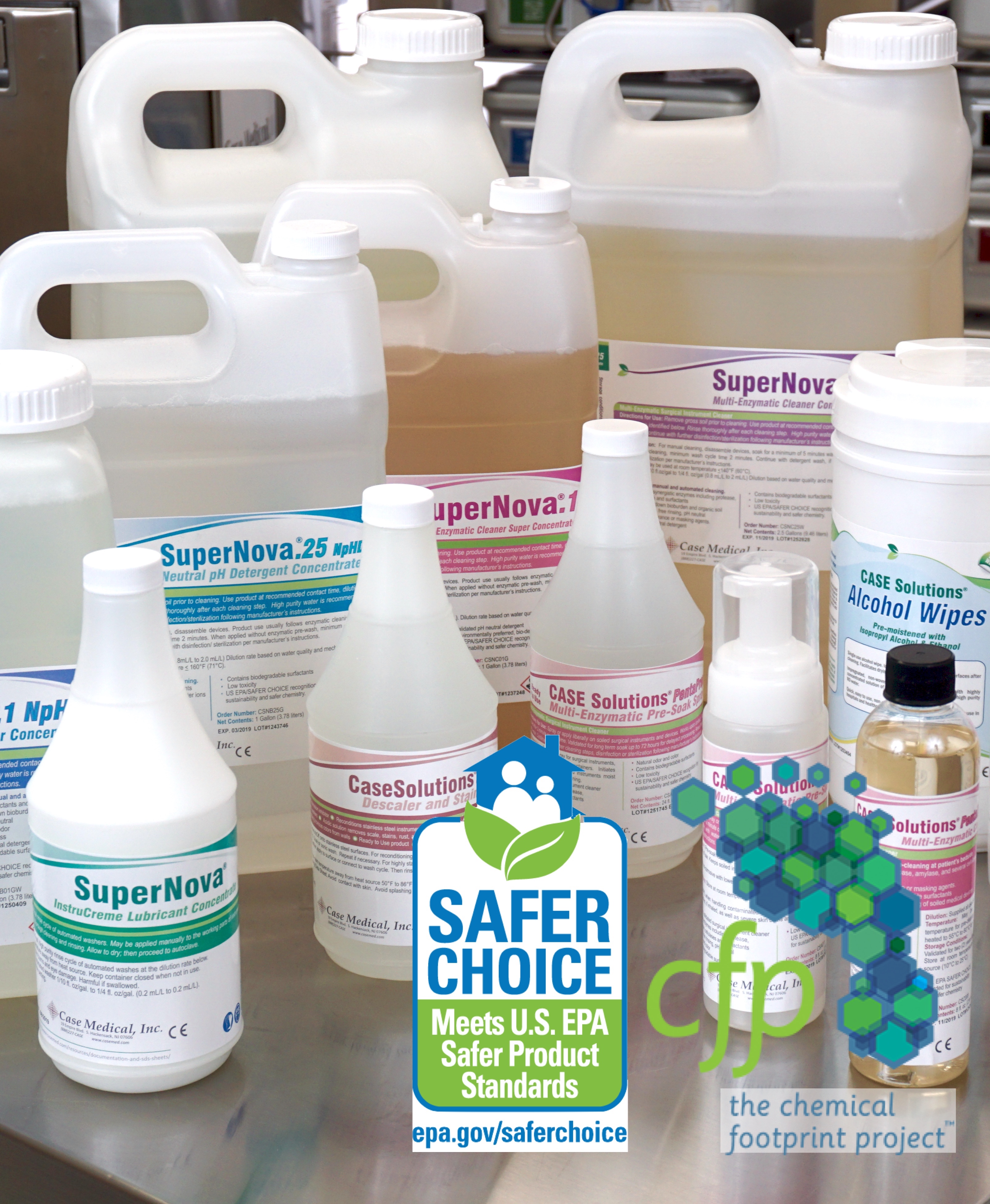
Together we can make a difference
There is hope, technologies exist to remove PFAS and other contaminants from the air and drinking water. As a manufacturer of reusable products, and as a formulator of instrument cleaning and maintenance chemistries, we at Case Medical, create products using only the safest of ingredients, as determined by the U.S. EPA SCIL and CleanGredients listing. Furthermore, we use and distribute RO water systems with granular activated carbon filters that remove chemicals of concern and are highly effective at removing “forever chemicals”. Case Medical participates in the Chemical Footprint Project, but also in the U.S. EPA’s Safer Choice program, the American Sustainable Business Network, the Sustainability Roadmap for Hospitals and other such programs, as a way to provide transparency, address sustainability with continuous improvement. In other words, “Don’t take our word for it… Look us up, we have the grades to prove it.”
Case Medical's Commitment to Continuing Education
Looking for safer alternatives means a commitment to best-practices, science-based facts, and continuous improvement. We are pleased to offer our online educational webinars with CE credits from HSPA and CBSPD. On September 15, 2022, please join us as we host a webinar on “Best Practices for Processing Flexible Endoscopes”. Click to register
Visit us at www.casemed.com to learn more about our products and how they can help your facility lighten its impact on the environment for the good of us all.
Marcia Frieze and the Case Medical team


